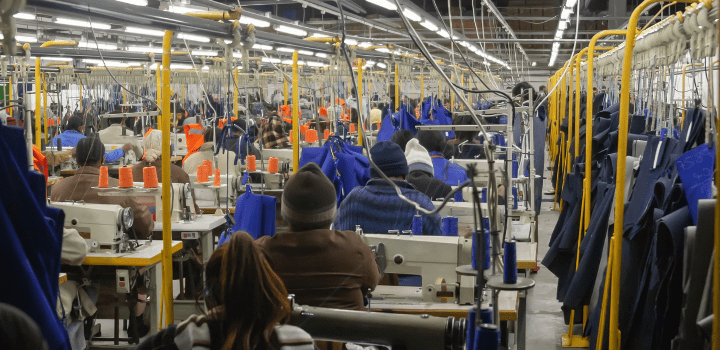This post is by Sophie Tuson, environment and climate change practice lead at the law firm RPC.
In recent years there have been increasing steps by legislators and regulators to hold companies accountable for environmental and human rights harms in their business operations and supply chains, from child labour and modern slavery to illegal pollution and deforestation. Shareholders, NGOs and civil society groups are also active in this space with a recent wave of legal claims against companies for failing to have proper processes in place to prevent negative supply chain impacts, or for allegedly misleading investors about the extent of any supply chain problems.
It’s a landmark moment for company accountabilityThis summer marked a turning point. On 25 July 2024, the EU’s new flagship supply chain law, the Corporate Sustainability and Due Diligence Directive, entered into force. It is a landmark moment. For the first time it introduces legally binding obligations on all companies meeting specific thresholds to conduct due diligence to address their environmental and human rights supply chain impacts. These obligations will be enforceable by regulators and through the courts, with significant monetary penalties and financial risks for companies that fail to comply.
The directive also attempts to move the dial on corporate climate action by requiring companies to adopt and implement robust net zero transition plans aligned with the 1.5°C target in the Paris Agreement, and to review and update these annually. This is a notable step change given previous concerns about the credibility of some companies’ voluntary climate transition plans.
Together with increasing stakeholder pressure from NGOs, consumers and shareholders, the directive raises the legal and moral standards for responsible corporate conduct, shifting the boundaries of companies’ ‘licence to operate’. As a result, it could open the floodgates to more supply chain litigation and regulatory scrutiny of companies’ sustainability efforts over the coming years.
Whilst the new requirements won’t apply until 2027, the direction of travel is clear and we’re likely to see other countries, including the UK, follow suit with similar laws. Following the introduction of a House of Lords private members’ bill earlier this year, proposing far reaching corporate due diligence, and with widespread support from the private sector, expectations on the new UK government are high, with many calling for it to keep pace with the EU.
Despite the uncertainty, one thing is clear, for EU and multinational businesses, supply chain sustainability is fast becoming a significant legal, financial and reputational risk. One that can no longer be ignored.
The concept of justice is woven through the directiveOne of the cornerstones of the directive is its provisions on access to justice. Where harm has occurred in the supply chain, it allows affected individuals to bring civil cases against companies to hold them responsible. It also tries to pre-empt the typical procedural barriers for claimants by addressing issues such as financial means, access to lawyers and evidence from the off. However, as with other areas of the directive, its scope was thinned down over the course of negotiations and there are likely to remain real challenges and high legal thresholds to bringing a claim and getting compensation in practice.
More generally, the concept of justice is woven through the directive with various protections for small and medium sized businesses (SMEs) and smallholders (including those in the Global South) to prevent the due diligence burden being shifted up the supply chain to them. There are also requirements for meaningful and effective stakeholder engagement (with employees and others) as part of the due diligence process. Whilst the strength of these protections in practice remains to be seen, the directive signals a strong desire to support a just and fair sustainability transition.
Despite weaknesses, it’s groundbreakingThe directive isn’t perfect and has attracted both praise and criticism. In particular, due to political wrangling before the summer’s EU elections, its scope was significantly watered down at the last minute, with NGOs criticising the fact that far fewer companies will now be caught by the rules than under previous proposals.
A compromise was also reached on the directive’s application to the financial sector with the upshot that financial institutions are only required to conduct due diligence of their upstream suppliers, and not their downstream investment portfolios (although this is reviewable by the European Commission after two years). Given the leverage and influence that investors can have in driving more sustainable corporate behaviour, the directive has been criticised as a missed opportunity to require financial institutions to do more to address the social and environmental impact of their investment and lending activities.
Despite its criticism, the directive remains a groundbreaking piece of legislation, in scale, scope and ambition. Eyes should now be on the European Commission as it prepares to publish further guidance on the new rules and, in due course, on the private sector as it gears up to comply.
Discover more from Inside track
Subscribe to get the latest posts sent to your email.
